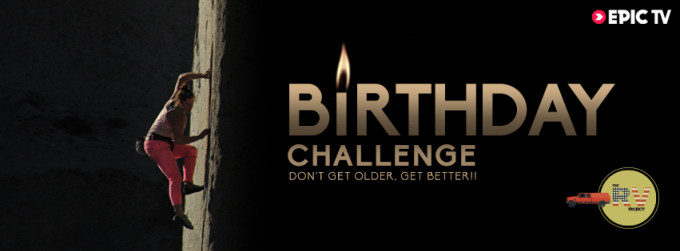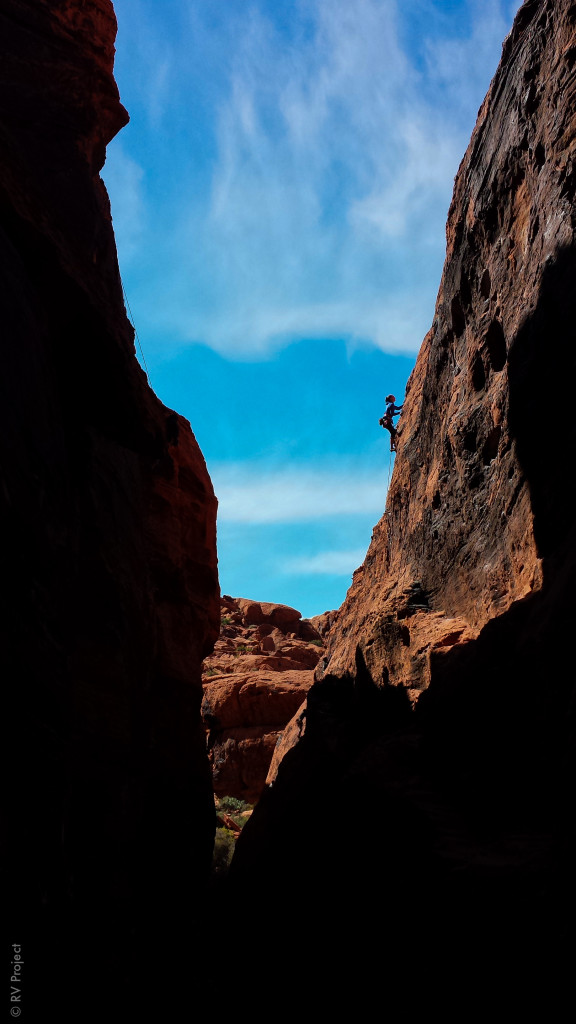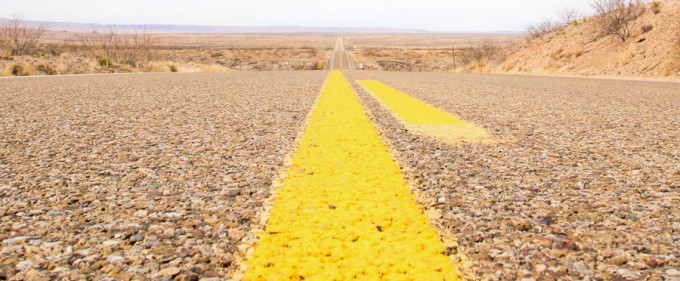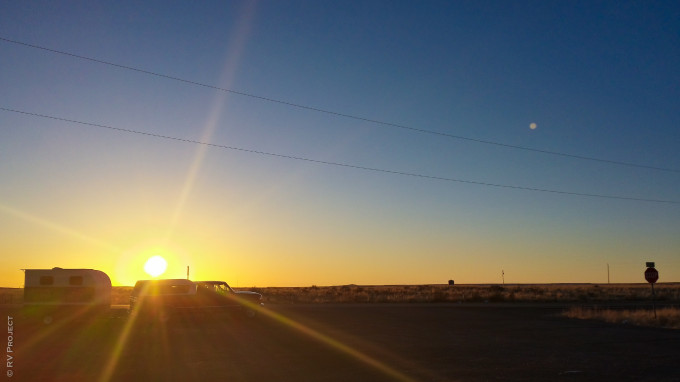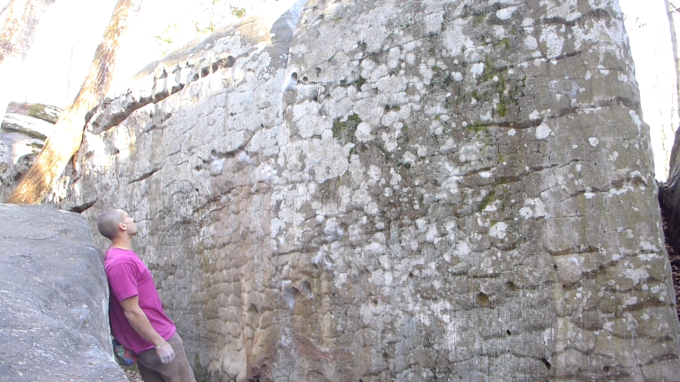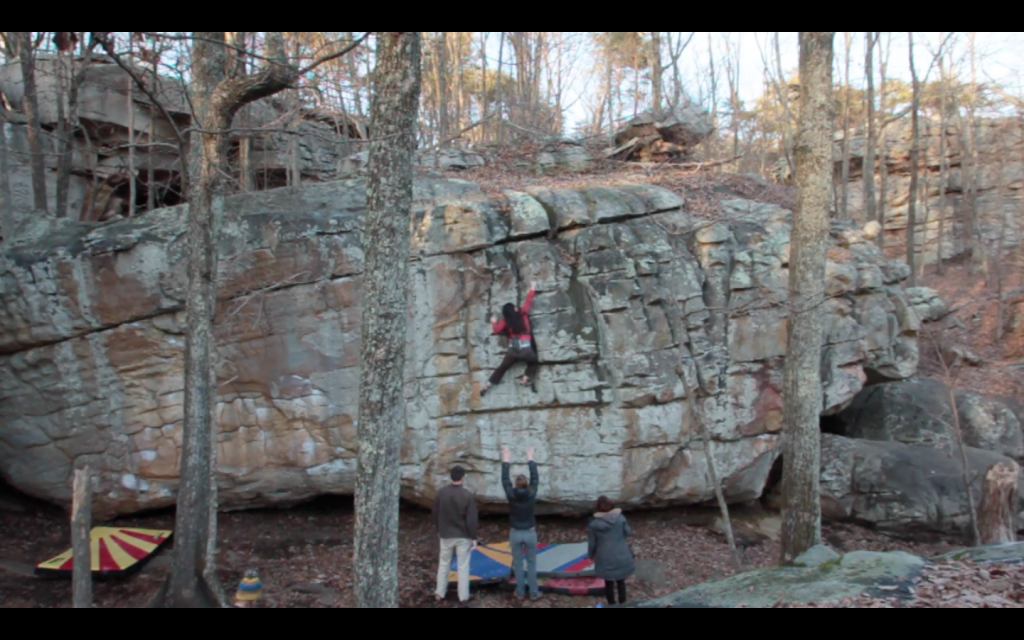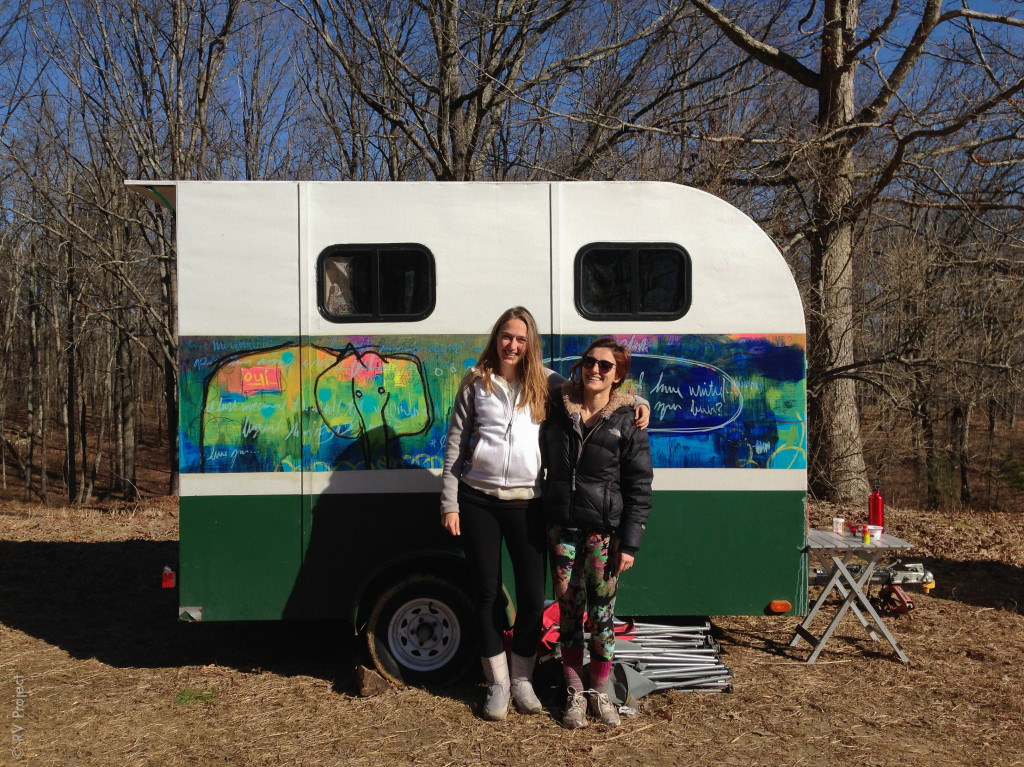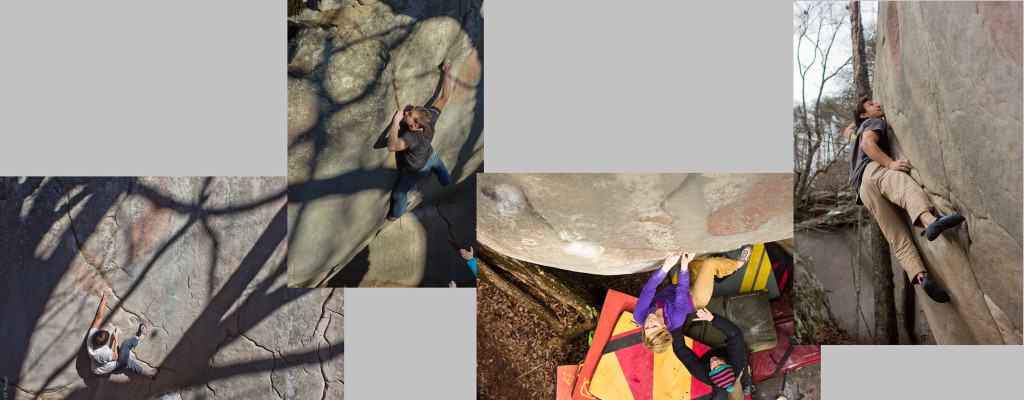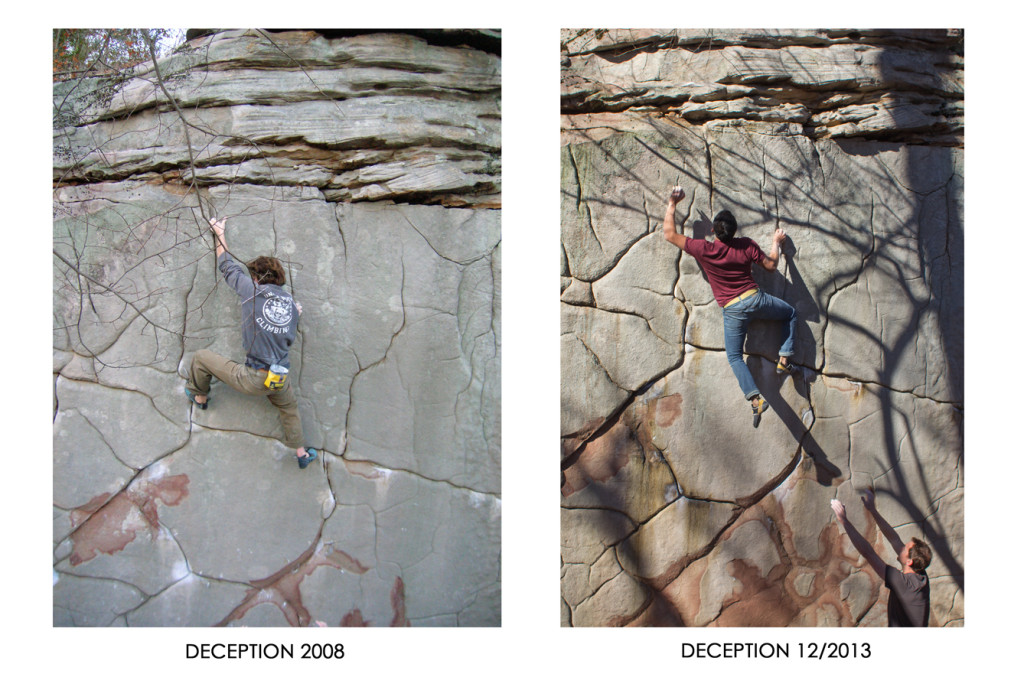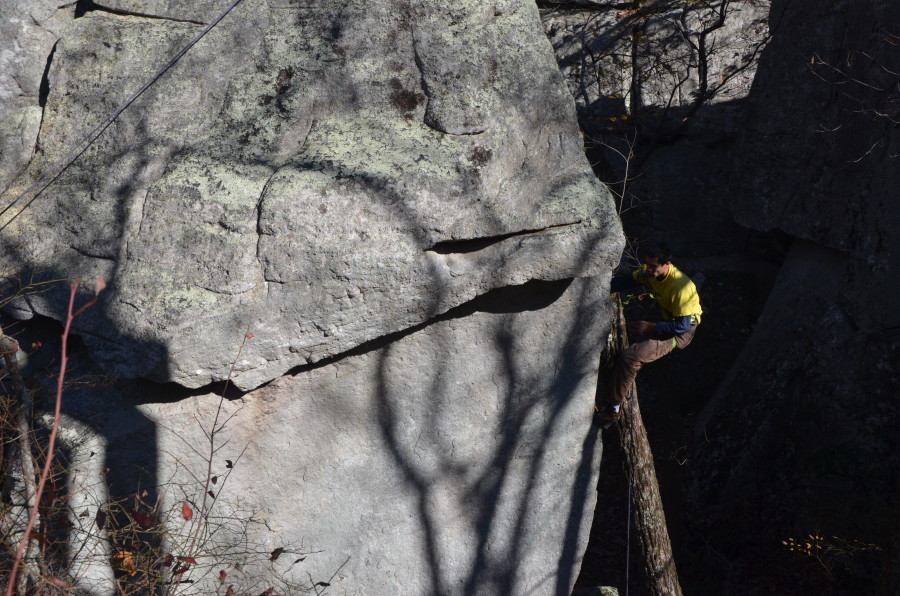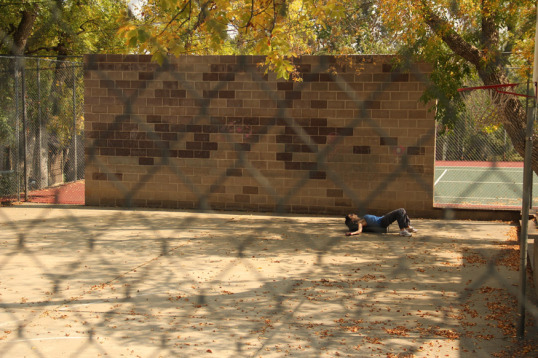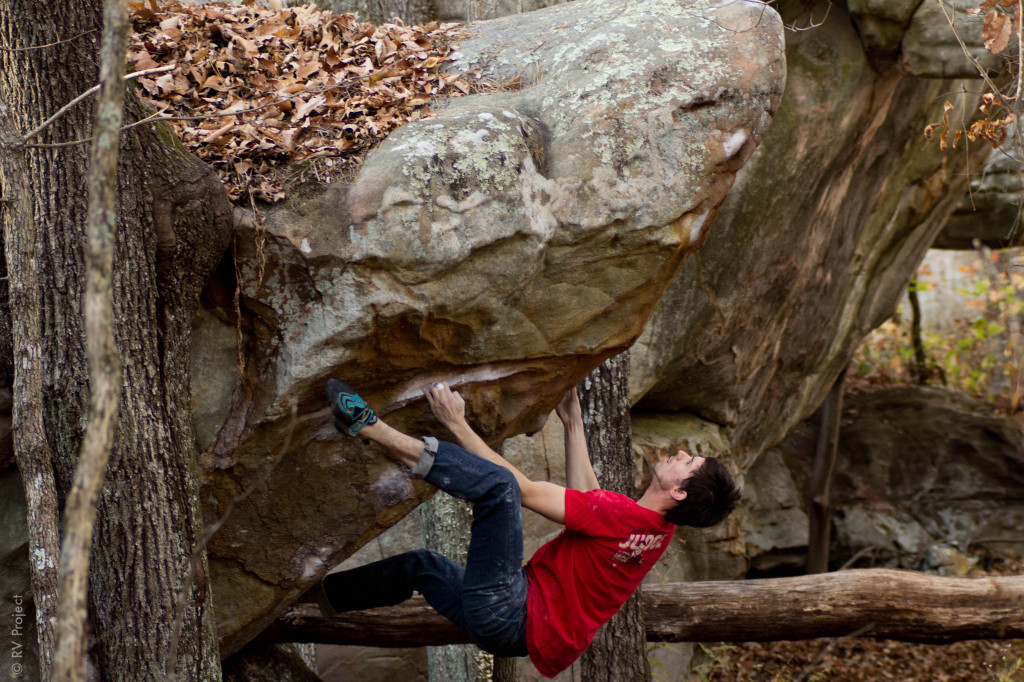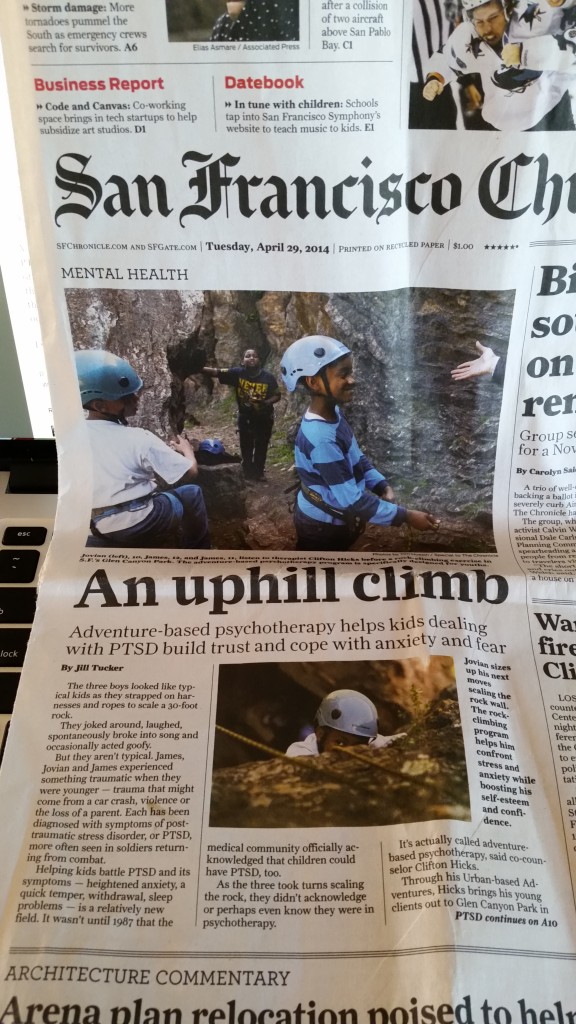
People climb for many reasons, and there are so many appealing reasons to climb. It’s fun and satisfying. For the die-hards, it’s a way of life, a lens for examining philosophy, a medium of self-expression. I’ve always loved to climb, but there was something about it that grabbed me in a deeper way that I couldn’t quite put my finger on. I think you climb, and therefore I think you know what I mean. On the front page of the SF Chronicle (April 29), I saw an article that hinted at exactly what I’m talking about. A therapist by the name of Dr. Clifton Hicks was having success treating children with PTSD by taking them rock climbing in Glen Canyon Park. I admit that part of me felt a bit of pride upon reading the headline, as though I were somehow ennobled by the therapeutic benefits of the sport I’ve chosen. But we know that – adventure-based therapy is not exactly new – but here was a psychotherapist running climbing-specific outings to treat a specific condition. I wanted to learn more about this utterly cool phenomenon. I was able to get Dr. Hicks on the phone. He was fascinating to talk to, and he’s the only person I’m aware of to write a dissertation about rock climbing. He explained that when a trauma occurs, it severely damages relationships in the child’s life that are critical to development. The child has been robbed of safety and security, and treatment involves reestablishing…


